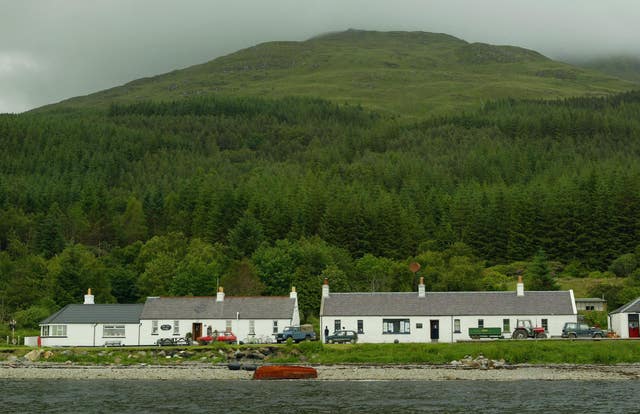Covid-19 death rates could be 80% higher in rural communities, say scientists
The University of St Andrews has investigated the contribution of population age structure to coronavirus fatalities in the UK by geography.

Death rates from Covid-19 could be between 50% and 80% higher in rural communities, according to a new study.
The University of St Andrews analysis predicts significant differences in the level of coronavirus fatalities depending on geographical location, due to ageing populations.
Despite the relative isolation in rural areas, it found death rates could be between 50% and 80% higher if the outbreak reaches them.

It is feared this could have long-term socio-cultural impacts on certain communities, particularly on areas which are strongholds for minority languages.
Professor Hill Kulu, who co-authored the study with his colleague Peter Dorey, said: “If the pandemic is to last long and the virus is to spread to all areas of the UK, remote small towns and rural communities are projected to have 50% to 80% higher death rates than the main cities because of their old population composition.
“Remote location may offer a protection from Covid-19 to some areas but if the virus is to spread to these communities the effects will be devastating.”
The study investigates the contribution of population age structure to mortality from Covid-19 in the UK by geography.
Its analysis projects death rates by applying data on age-specific fatality rates to the area’s population by age and sex.
High-risk and vulnerable communities are concentrated in large areas of south-west England, coastal communities of east and south-east England, north Wales, northern England, southern Scotland and the north-west Highlands.
Mr Dorey said: “Within urban regions there are also pockets of high projected death rates.
“Overall, the areas with high and low fatality rates tend to cluster because of the high residential separation of different population age groups in the UK.”
The research also reveals Welsh, Gaelic and Cornish-speaking communities with relatively old populations are likely to experience heavy population losses if the virus spreads.
Prof Kulu added: “The Covid-19 pandemic may also have long-term socio-cultural effects.
“The Welsh, Gaelic and Cornish-speaking communities with relatively old populations are likely to experience heavy population losses if the virus spreads widely across the UK.”
Caithness, Sutherland and Easter Ross MP Jamie Stone said: “These projections are devastating and re-emphasise how important it is we protect vulnerable people wherever they are.
“One of the key ways to do that is to clamp down on people heading to rural areas for respite or escape.”
He added: “Communities across the Highlands have watched in horror as people flooded out of Scotland’s cities to second homes or holiday sites.
“We must ensure that when we do start to ease restrictions and come out of lockdown this exodus is not repeated.
“Each and every one of us has a duty not to spread this disease.”





